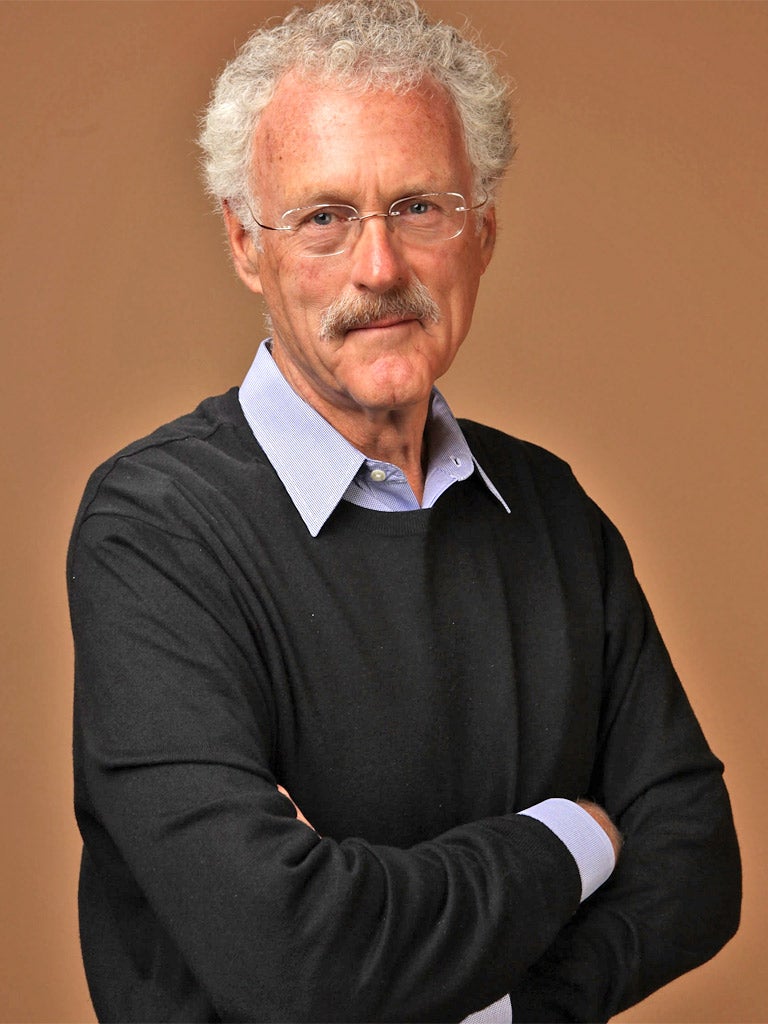Jake Eberts: Goldcrest founder who helped revive the British film industry in the 1980s

A Canadian in London, Jake Eberts used his skills as an investment banker to launch Goldcrest with the producer David Puttnam and give a major boost to the British film industry in the 1980s. Goldcrest was formed in 1977 as a development finance company for film projects and its first success, the Oscar-winning Chariots of Fire (1981), about a devout Scottish Christian running for the glory of God and an English Jew competing to overcome prejudice in the 1924 Olympics, was typical of the prestige productions Eberts wanted to back.
When its writer, Colin Welland, accepted his Oscar – one of four conferred on the picture by the Hollywood establishment – he declared: "The British are coming!" This renaissance was limited, but Goldcrest was at the forefront of it, along with other independent production companies such as Palace and HandMade, and the newly launched Channel Four, which provided a new source of investment for British films.
By the time Gandhi was released in 1982, Goldcrest was a full-blown film production company. Directed by Richard Attenborough, this picture doubled the Chariots of Fire Oscar haul and confirmed Goldcrest's credentials internationally. The Scottish comedy Local Hero (1983) and The Killing Fields (1984), set in Cambodia during Pol Pot's regime, were further successes.
Eberts was adept at finding finance for films from City of London institutions, but in 1984 – unhappy with Goldcrest's diversification into television – he accepted an offer to become head of Embassy Pictures in the United States, which was undergoing ownership changes and a switch of name to Embassy Films.
A year later, when it was sold on again to Coca-Cola, Eberts headed back to Goldcrest and faced a new challenge – turning round a company that was facing financial crisis after committing itself to producing three high-budget films, Revolution (1985), Absolute Beginners (1986) and The Mission (1986), that would flop at the box office.
The task was too difficult and, on the brink of bankruptcy, Goldcrest was sold to Brent Walker in 1987 and Eberts moved on to pastures new. However, he could reflect that over the previous six years Goldcrest films had won 19 Oscars and more than 50 Baftas. Although its releases were not ground-breaking or gritty in the way of some other British pictures of the period, such as My Beautiful Laundrette and Prick up Your Ears, many were thoughtful, intelligent productions that carved out a niche for Goldcrest and helped to put the country's film industry back on the map.
Born in Montreal, Quebec, Eberts studied chemical engineering at the city's McGill University, worked briefly for the French company L'Air Liquide, then gained a masters degree in business administration from Harvard Business School. He became an investment banker on Wall Street and was transferred by Oppenheimer & Co to its London office in 1971, becoming managing director five years later. When another banker approached him seeking development finance for an animated film version of the Richard Adams novel Watership Down, Eberts was fired with enthusiasm.
A year before the film's 1978 release and worldwide box-office success, he formed Goldcrest but for a while failed to emulate that previous picture's fortunes. He arranged some funding for the Ken Loach-directed Black Jack (1979) and put $750,000 of his own into Zulu Dawn (1979) – the prequel to 1964's Zulu – but both lost money.
The tide turned with David Puttnam's idea to make Chariots of Fire. Eberts spent £17,000 on commissioning the script and the film was financed by Allied Stars – Dodi Al Fayed's company – and Twentieth Century-Fox, with Puttnam's Enigma Productions making it. On adding production to its own remit, Goldcrest was responsible for a string of acclaimed films, including Dance with a Stranger (1984), A Room with a View (1985) and Hope and Glory (1987).
After leaving the company for the second time, Eberts started again, switching to Allied Filmmakers, which he had set up in 1985 and was involved in the production of The Name of the Rose (1986), a murder-mystery set in an Italian monastery and starring Sean Connery.
He was always prepared to take risks. After The Adventures of Baron Munchausen (1988) proved a financial disaster, Eberts struck back with the Oscar-winners Driving Miss Daisy (1989) and Dances with Wolves (1990). He was also executive producer of A River Runs Through It (1992), James and the Giant Peach (1996), Chicken Run (2000) and The Illusionist (2010). Turning to documentaries, Eberts became non-executive chairman of National Geographic Films, which produced the Oscar-winning March of the Penguins (2005).
Eberts was appointed a Member of the Order of Canada in 1992, two years after recalling in his memoir My Indecision is Final: The Spectacular Rise and Fall of Goldcrest Films, the Independent Studio That Changed Hollywood, how the industry wore him out in the 1980s."I never stopped thinking about the business: 24 hours a day, seven days a week – I couldn't hold an intelligent conversation with my kids," he wrote.
Anthony Hayward
John David Eberts, film producer and executive: born Montreal 10 July 1941; married 1968 Fiona Leckie (two sons, one daughter); died Montreal 6 September 2012.
Subscribe to Independent Premium to bookmark this article
Want to bookmark your favourite articles and stories to read or reference later? Start your Independent Premium subscription today.

Join our commenting forum
Join thought-provoking conversations, follow other Independent readers and see their replies